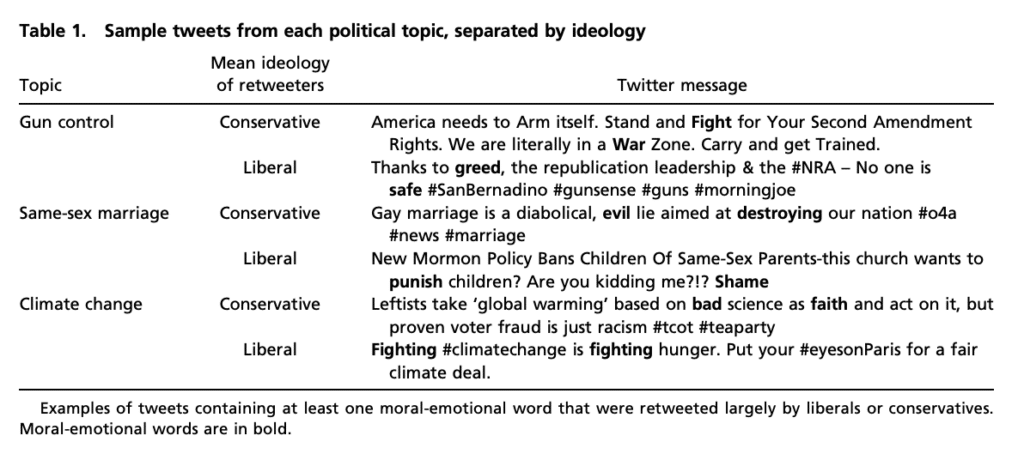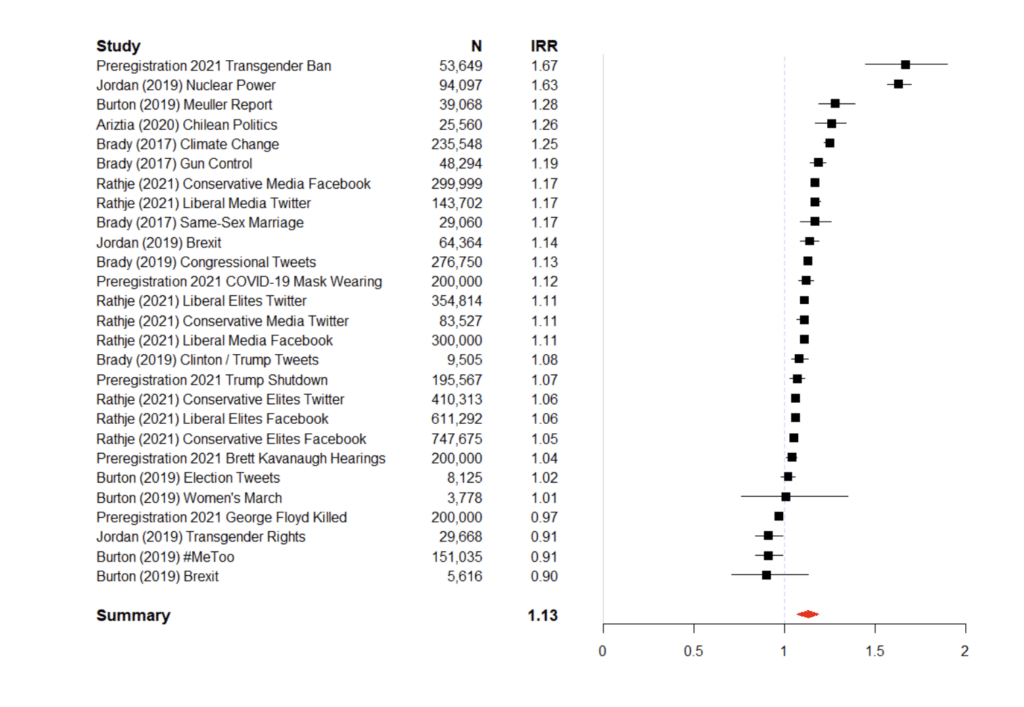Psychologists observe moral contagion on Facebook & Twitter
Justin Hendrix / Apr 9, 2021William Brady and Jay Van Bavel, psychologists at Yale and NYU, respectively, collaborate to study how moral attitudes and norms are transmitted on social media. The researchers today announced results of "a meta-analysis of all available data testing moral contagion" on Facebook and Twitter. The researchers define the term as "emotional expressions related to the domain of morality (moral emotion expression)" and find such terms are "associated with increased diffusion of political messages--a phenomenon we called ‘moral contagion’."
What are "moral-emotional" words? The authors' prior research illustrates its results with examples of tweets containing words such as "fight," "war," "evil", "destroying," "punish," "shame," and "bad." The meta-analysis suggests the moral contagion effect is so pronounced that "each message is 12% more likely to be shared for each additional moral-emotional word."

To arrive at its conclusions, which have yet to be peer-reviewed, the study considers data and results from 5 separate labs and 27 studies that utilized the same methods. It also replicates the results of a prior 2017 study by the authors, applying its methods to five more recent contentious political topics including the Brett Kavanaugh Supreme Court confirmation hearings in 2018, former President Donald Trump's decision to prevent a budget resolution as leverage to build a border wall and the Supreme Court decision on the transgender ban in the military in 2019, and the death of George Floyd and controversy over masks during the pandemic in 2020.

"It appears that moral emotions play an important role in the diffusion of political messages across numerous words, topics, authors, and social media platforms," conclude the authors.
While it is perfectly understandable that individuals would employ moral-emotional language to describe and respond to events such as the death of George Floyd, it is also worth considering the extent to which the reward of retweets, likes and shares condition users to use increasingly moral-emotional language over time, and how other affordances of the platforms may reward or facilitate moral contagion.
Authors
